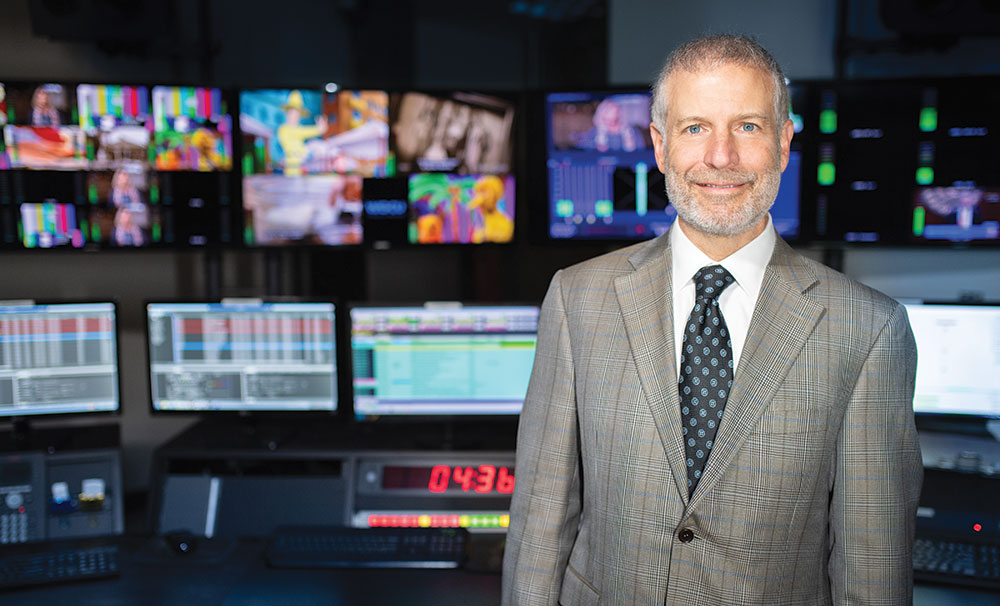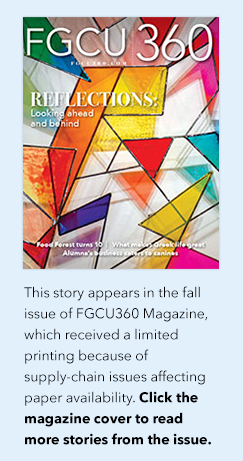For brief periods throughout U.S. history, humanity is tested, civility is on the decline, and democracy is at risk. This is corrected by inspired and informed people who are set into action to debate, challenge and correct these problems. Unfortunately, their work is rarely complete, and the focus of injustice shifts to other cultures, geographies, leaders and socioeconomic groups.
WGCU has served for decades as a remedy when there is a decline in civility. And we continue to do this by providing the news and context that enable listeners and viewers to interpret it.

Our audience in Southwest Florida is nearly evenly divided among Republicans, Democrats and independents, liberals and conservatives. This is one of the things that excited me about coming here: WGCU’s stations are among those with the highest market shares of any PBS or NPR station in the country. We achieve this in a community that is among the most politically and culturally diverse.
Our balanced audience is evidence of our balanced content. WGCU is the convener in our community, empowering the audience to celebrate our common ground and our differences. It is through this experience that civility and humanity thrive, or when they are suffering, can be repaired.
We’re at a turning point
But what brought WGCU to this successful point in history cannot carry us into the future. Our mix of national, international and modest but mighty local coverage has made us a destination for thought leadership and thoughtful people. We must augment national programs with more locally originated content so that we are more than a common national distribution platform, and without sacrificing one of our biggest strengths: Bringing audiences voices from around the globe.
Many commercial media companies have business and content models that create an echo chamber serving one political leaning, or a narrowcasting of interests and lifestyles. The danger in either case is an uninformed public that hyper-focuses and does not rise to the greater public good.
We must significantly increase our original content if we want to continue to be the one-stop destination for local, national and international news and culture. At the same time, we can develop deep content areas using local experts on global issues such as the environment and healthy aging, and investigative reporting to cover both served and underserved communities.
More local voices and stories from our station are critical to serving local audiences in areas where newspapers are falling off.
How will we do this? Currently the fundraising staff and resources are among the smallest in the country for stations of our size and audience impact. An initial investment here will fund more reporters than if we invested straight into journalism projects. Before coming to WGCU, I consulted analysts in the public and private sectors to assess how much we could potentially increase our revenue. By measuring the size of our audience against current revenue, we determined that WGCU could double our funding. This is a model of sustainability to serve our community.
Democracy Watch
We are strengthening our partnership with the FGCU journalism program, building a collaborative investigative reporting platform, which also will support the journalism program’s Democracy Watch initiative.
Three Democracy Watch student fellows selected from a government reporting class will be mentored by a WGCU senior editor and a senior reporter, who will help the students elevate their work to the high standards of NPR and PBS.
The journalism program and WGCU have a commitment of nearly $500,000 from donors and from the university to create learning space at WGCU for journalism students and to staff the investigative unit. We’re seeking significant funds from the community to grow the independent investigative unit and Democracy Watch and to build the newsroom of the future.
We all strive for the same things, for connectedness and to be inherently good. Humanity occasionally stumbles, and then we recover. Public media – WGCU – can give people the context and information to help people to be who they inherently are now and for our collective future.
NEW GENERAL MANAGER ADJUSTS TO SOUTHWEST FLORIDA JOB, LIFESTYLE
The fact that new WGCU General Manager Corey Lewis is an adaptable sort was obvious from day one. Although long past his bachelor’s degree days at the University of Massachusetts Amherst – and also his master’s days at Boston University – he moved into the FGCU residence halls. Since he started the job here in mid- May and his family was finishing the school year and other commitments in Boston – where he was station manager for NPR station WBUR – he was on his own for the coming weeks.
What passes for spring here turned to sweltering summer, and although he admitted missing skiing on the weekends, he was more than content to walk like a Floridian and embrace his passion for cycling and kayaking.
More than adapting, he has already begun to make his mark. He opened up new jobs to bolster the development and underwriting crews at WGCU, with Lewis’ goal of funding expansion of the news team.
His wife, Kathleen, and their sons are now in residence. Kathleen Lewis is getting the family settled at home and seeing how she can make a difference in Southwest Florida. Son Zach, 14, is determined to help take the Gulf Coast High School varsity boys’ lacrosse team to a district championship, and son Max has transferred from a university in the Northeast to FGCU.
Asked to list the top things he’s adapted to in the shift nearly 1,500 miles south, Lewis replied:
- A better sunscreen
- A bigger hat
- The loss of my treasured tie collection (it’s just too hot)
- A loss of clam chowdha
- A basement, attic and backyaaad
- An upgrade to the GPS of my 8-year-old car since all of my meetings in the community look like they are held in the woods.
– Dayna Harpster
[/vc_column_text]